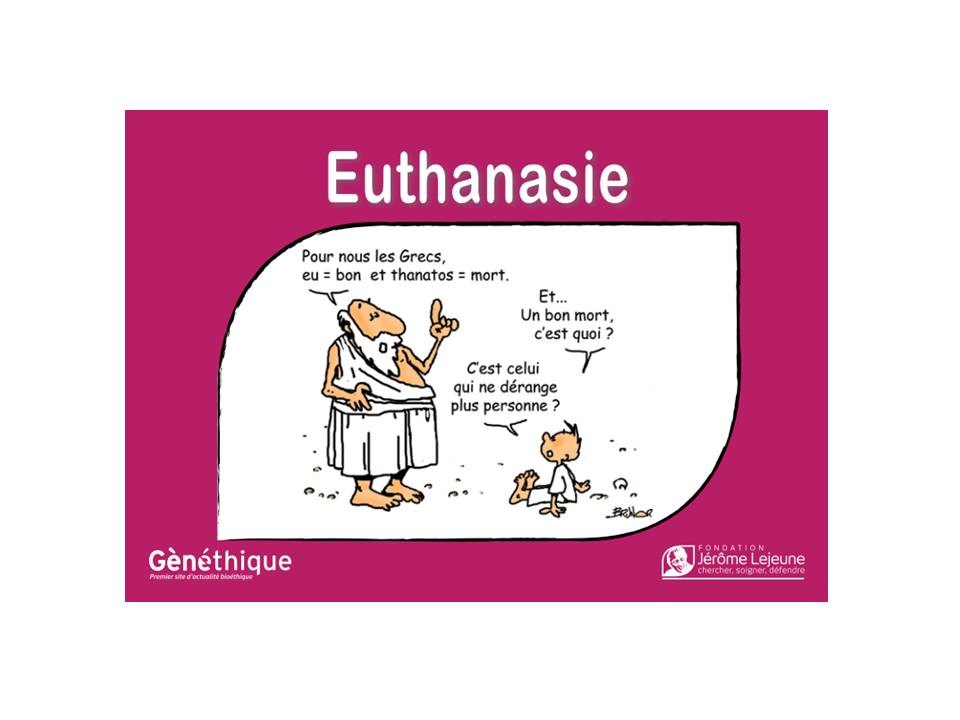As part of a collection of books for young people, the Jérôme Lejeune Foundation has just published, in partnership with Gènéthique, a new euthanasia manual. This initiative was formed from the need for reference points to understand this complex and painful issue. Through a scientific and medical approach, like precedent manuals, it takes the floor against the upsurge of particular media cases that impede substantive discussion. Rather than emotional, they prime rational and pragmatic reflection.
This reflection is essential as the government has announced its intention to submit a bill on end of life by the end of the year. This document therefore includes semantic information, historical references (concept of aggressive therapy and emergence of the hospice movement), clinical references (distinctions between controlled sedation and terminal sedation, artificial feeding, etc.) as well as the presentation of useful legal terminology to allow better understanding. These educational elements are accompanied by quotes and testimonials, and are illustrated by drawings.
This manual is structured around five sections:
1. Definitions. It provides welcome clarification on semantic developments and existing forms of euthanasia, explaining the distinctions between terms that are seemingly similar (e.g. distinction between “euthanasia by omission” and “refusal of aggressive treatment“).
2. Ethics. Defined as the search for the best for patients; ethics based on anthropological issues related to human dignity at end of life.
3. Medicine. This section explores the role of medicine and the physician’s responsibility, especially when faced with requests for euthanasia.
4. Law. What could be the legitimacy to legislate death? This part looks at the news, comparing the cases of Vincent Humbert and Vincent Lambert. It also decrypts the Leonetti law, which was the subject of recent controversy.
5. Solutions. Palliative care provides support “when there is nothing more to be done“. This aims to develop the philosophy underpinning palliative care and give concrete advice, such as the possibility for families to ask for palliative home care for their dying loved one.
Practical information:
▸ To order the Euthanasia Manual:
lesgratuits@fondationlejeune.org
▸ In the same collection:

